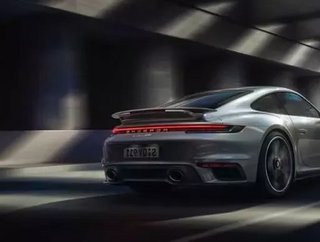Siemens Energy/Porsche to advance climate neutral e-fuel

In an announcement made by Volkswagen - parent company of Porsche - the sports car manufacturer has partnered with Siemens Energy as well as other international companies to develop and implement a pilot project in Chile. The project is expected to deliver the first integrated, commercial, industrial-scale plant for making synthetic climate neutral fuels (e-fuels).
It is said that in the pilot phases roughly 130,000 litres of e-fuels will be produced by 2022, with an additional two phases to increase the capacity to 55mn litres of e-fuel by 2024, and 550mn litres by 2026. Porsche will be the primary customer, with other partners including AME, ENAP and Enel.
The pilot project known as ‘Haru Oni’ will take advantage of the excellent wind conditions in Southern Chile to produce carbon neutral fuel. In addition, as part of Germany’s national hydrogen strategy, Siemens Energy will receive a grant in the region of US$9.7mn from the Federal Ministry for Economic Affairs and Energy to support the pilot project.
“Establishing a sustainable energy economy is going to require some rethinking. Renewable energy will no longer be produced only where it’s needed, but where natural resources like wind and sun are available on a massive scale. So new supply chains are going to arise all over the world to carry renewable energy from one region to another. That’s especially important for Germany, which – bottom-line – has to import energy if it’s going to meet its nationwide demand. Hydrogen will come to play an increasingly important role in storing and transporting energy. Which is why the German government’s support for the project is an important signal,” commented Christian Bruch, CEO Siemens Energy.
“Electromobility is a top priority at Porsche. E-fuels for cars are a worthwhile complement to that – if they’re produced in parts of the world where a surplus of sustainable energy is available. They are an additional element on the road to decarbonization. Their advantages lie in their ease of application: e-fuels can be used in combustion engines and plug-in hybrids, and can make use of the existing network of filling stations. By using them, we can make a further contribution toward protecting the climate. As a maker of high-performance, efficient engines, we have broad technical expertise. We know exactly what fuel characteristics our engines need in order to operate with minimal impact on the climate. Our involvement in the world’s first commercial, integrated e-fuels plant supports the development of the alternative fuels of the future,” added Porsche CEO Oliver Blume.
In the first phase of the project Porsche will use the e-fuel from Chile in beacon projects including motorsports and in serial production sports cars. Its initial investment will total roughly US$24.2mn.
For more information on manufacturing topics - please take a look at the latest edition of Manufacturing Global.






